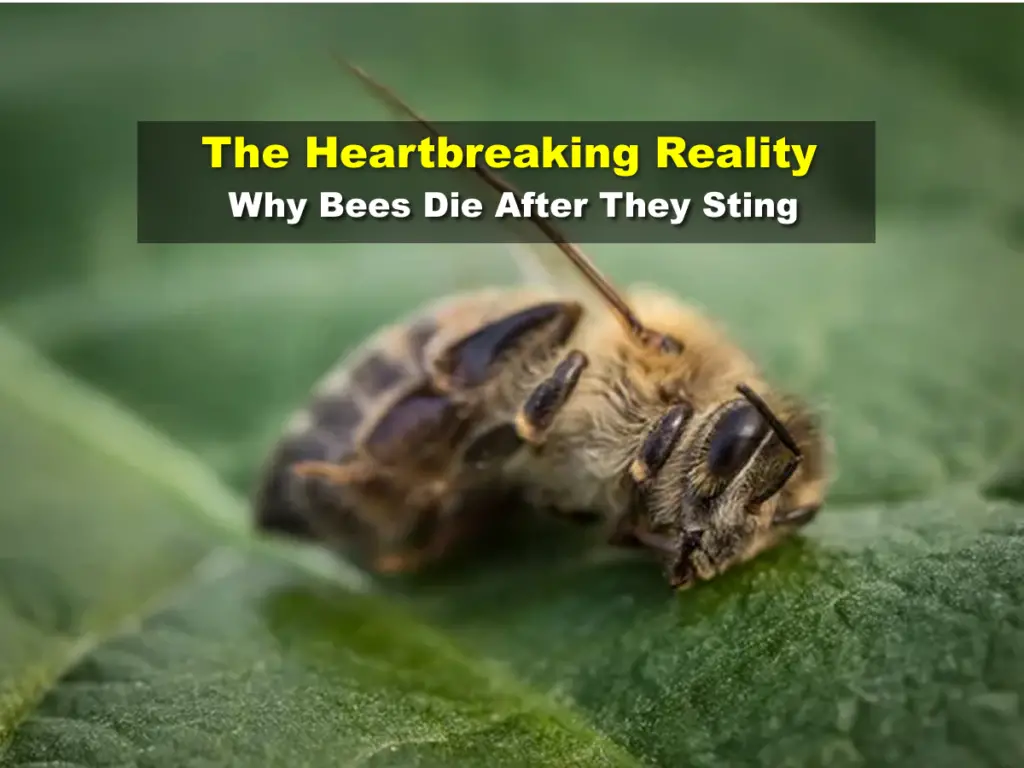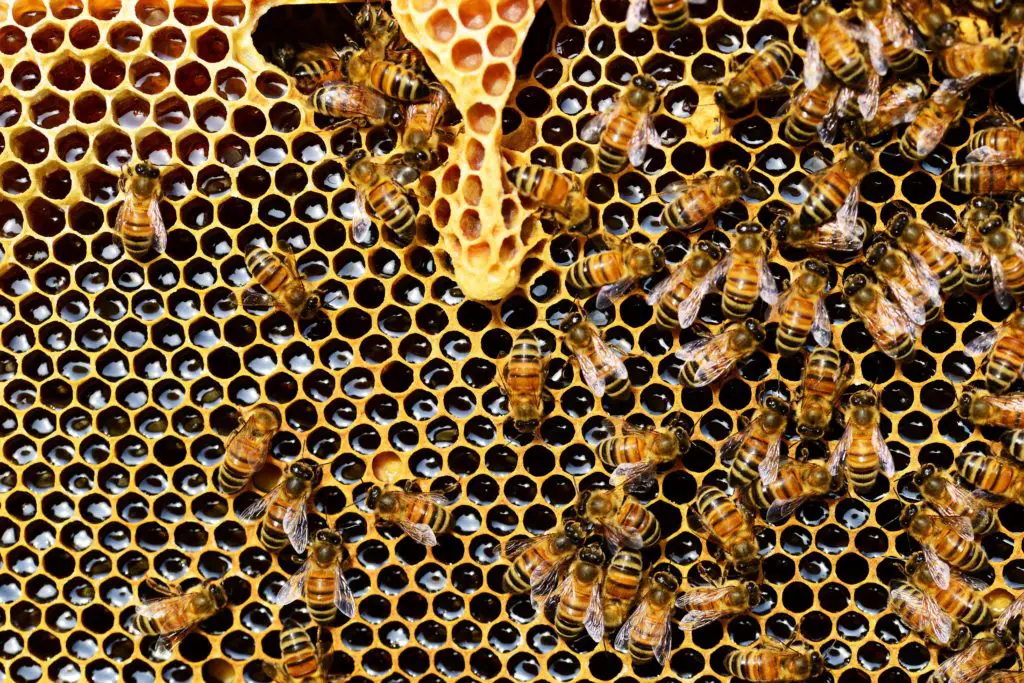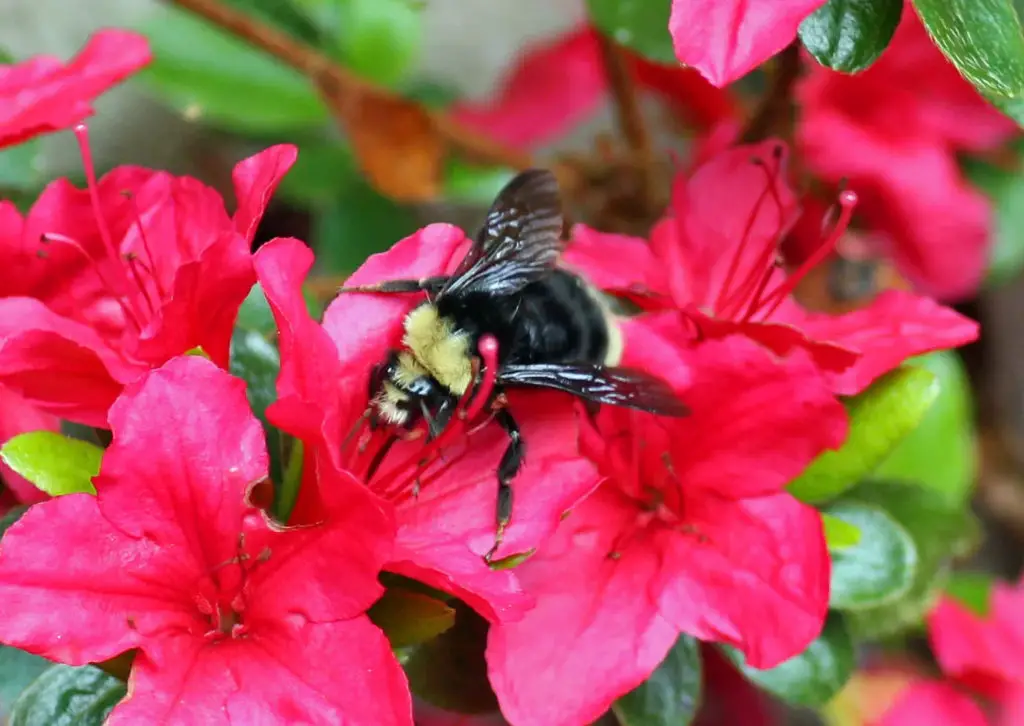Affiliate Disclaimer - As an Amazon Associate I earn from qualifying purchases.
It supports the website. So, Thank you
I remember when I was a kid, running around the garden trying to escape a bee that had taken a liking to me. My mom was yelling at me to stay still because the bee wouldn’t sting me unless I hurt it. I had to wonder why but once our little friend had flown away, my mother explained that bees die when they sting so they’ll only do it if they really have to. But why do bees die after stinging? Sadly, it’s a traumatic tale!
Bees stingers detach from their bodies when they sting. Once the bee pulls away from its victim, a gaping wound is left behind which leads to the bee’s certain death.
Table of Contents
Why Do Bees Sting?
I know a lot of people that are terrified of bees for the pure and simple fact that they don’t want to get stung. The reality of the situation is that bees are highly unlikely to sting you unless you bother them.
Generally speaking, most bee species are incredibly placid and just want to get on with their busy lives. It’s only when humans start swatting or batting them that they become aggressive. But so would you if a giant was trying to whack you!
Moreover, bees will do whatever it takes to protect their hive so if they feel that there is a threat to their home, they’ll sting when they need to. And if you’re unlucky enough to get caught messing around near a beehive, you’ll have more than just one bee to contend with. When they’re threatened, honey bees release a pheromone that alerts other members of the colony to the danger and they’ll all come to the rescue!
Do Bees Die When They Sting You?
If you’re unfortunate enough to be stung by a bee then you might find comfort in the fact that the bee will come off worse. While scientists believe that bees are not aware of what awaits them after stinging, it still seems that they’re reluctant to do so unless they feel threatened; it’s a method of protection, after all.
However, if a honeybee stings you then it’s not good news for them. These bees have a barbed stinger which, when inserted into the skin of a victim, gets stuck. This means that the bee is also stuck so it has to wriggle free. In the process, the stinger is ripped from its body and a serious wound is left behind.
Now, here’s where it gets gruesome. The stinger attaches to the inside of the bee’s body and is actually connected to the digestive system as well as several nerves and muscles. It doesn’t take me to tell you that this is a fatal injury that no honey bee can survive.
Do All Bees Die When They Sting?
Before I get into the answer to this question, I should point out that not all species of bee even have a stinger. In fact, out of the 20,000 species of bees, there are around 500 that don’t have the ability to sting. Instead of stinging, these bee species protect themselves by biting.
When it comes to dying after stinging, it’s only the honey bee that faces this terrible fate. The reason for this is because of that barbed stinger I talked about earlier on. Other bee stingers are designed in a different way and therefore don’t become lodged when they use them.
Are Bees Venomous?
It might surprise you to learn that more people are hospitalized every year from bee stings than any other kind of insect bite or sting. However, for most people, a bee sting is a minor concern and while there may be some pain, swelling, and irritation, it’s something that can be treated at home.
But that largely depends on the species that has administered the sting. For example, honey bee venom contains histamine which can cause allergic reactions and irritation. Some people are severely allergic to this and may end up having to receive medical treatment in hospital. Again, most people can self-treat.
Perhaps the most dangerous type of bee is the Africanized killer bee which has a far more potent venom than other species. What’s more, these bees tend to attack in large numbers and are markedly more aggressive than something like the bumble bee or honey bee.
Final Thoughts
Bee stings are common when spending time outdoors in summer but they’re usually very minor and can be treated at home.
While millions of people are terrified of being stung by a bee, you have to keep in mind that these creatures only sting when threatened.
What’s more, you’re very unlikely to be stung by a honey bee as this species dies after it stings. But why do bees die after stinging?
It’s a pretty horrific tale that involves the bee’s stinger getting lodged into the victim and, when the bee frees itself, it’s left with an injury that always proves fatal!




